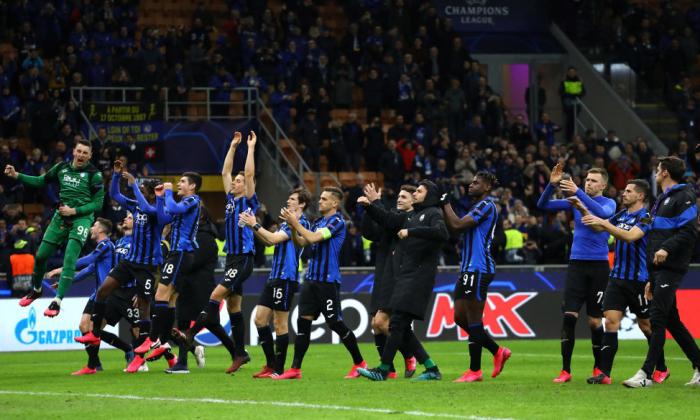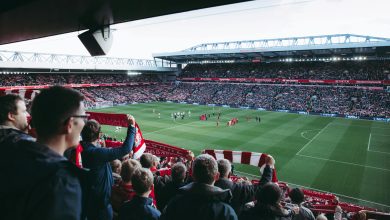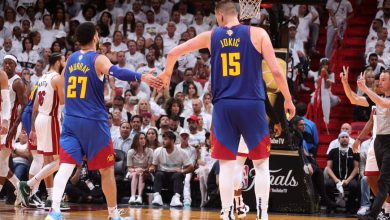The meteoric rise of Gian Piero Gasperini’s Atalanta

Gian Piero Gasperini’s Atalanta have risen from Serie A minnows to Champions League giant-killers in just a matter of years.
The way they’ve done it should make them every neutral fan’s favorite team to watch. In Serie A this season, stereotypes are being challenged.
Italian football has long been known, and even dismissed as, defensive, direct and boring; but more and more, that is becoming the view of someone who doesn’t really watch and is relying on lazy tropes.
There have been some dark years of Catenaccio, but Calcio is making a comeback in a new, more entertaining guise.
Few clubs represent this better than Atalanta, who are among the most attacking sides anywhere in Europe, and have risen into competition with Europe’s elite.
Their story is becoming increasingly hard to ignore and for any fan of the game who takes note, it is hard not to admire them.
The story of this Atalanta side begins with manager Gian Piero Gasperini, a previously unspectacular coach who spent the majority of his career crossing between Genoa and Palermo, albeit with a brief stint in charge of a 2011 Inter side devoid of identity after a fall from grace.
Before he took over at the Stadio Atleti Azzurri d’Italia in 2016, Atalanta had spent five consecutive seasons in the bottom half of Serie A and spent most of the past decades bouncing between the first and second division.
Since then, he has developed and improved his reputation without many household names, implementing his style and watching everything grow.
Some players have developed and been sold on, most notably Franck Kessie, who joined AC Milan three years ago. But overall, this is a team greater than the sum of its parts.
They finished fourth in Serie A in 2016-17, when the league was only allocated three Champions League spots, then dropped to a still-impressive seventh in 2017-18 before qualifying for the Champions League for the first time last season through a third-place finish.
Their Cinderella story gained some wider attention this year when they made history by becoming just the second team to lose all three opening Champions League group games and still progress, after Newcastle United in 2002-03.
There were surely some elite clubs hoping to draw them in the last 16 because of their status as a gritty underdog, but the first leg of their Round of 16 tie with Valencia showed exactly what they’re capable of; the 4-1 win made everything clear, lots of hard work has gone into making this team capable of upsetting the apple cart both domestically and on the continent.
Manchester City, Inter, Juventus and Lazio have all seen how difficult Atalanta are to contain and break down this season.
Money and superstars don’t always make a good team, as they are proving. While nobody in Italy will have been shocked by their European success, having seen Gasperini work his magic over the past four years, their journey has still been remarkable.
To put their relative size into context, Atalanta’s European campaign is being played at San Siro, because their Bergamo home is not up to UEFA standards. If the Valencia game wasn’t enough, the evidence is there in Serie A too.
Lazio have Ciro Immobile leading the line, one of Europe’s most potent striker this season, and have deservedly earned great acclaim for their title challenge under Simone Inzaghi and also some days back, came from two goals down to shock Lazio and dent their title hopes.
But Atalanta, currently in fourth, have outscored them by ten goals, wracking up an incredible 84 goals in just 29 games, an average of 2.9 per 90 minutes.
They are far and away the most dangerous team to face in the division, as Lecce found out in their 7-2 thrashing recently which made it the third time they had netted seven this season, after doing it to Udinese and Torino earlier in the campaign.
Stats can only tell part of the story, though; to really experience what Gasperini and Atalanta have created, they need to be seen.
They are as close to playing without the handbrake as is possible in Italy, while still maintaining the organization the country is famous for; that is why their approach works so well.
Josip Ilicic, their top scorer, has been outstanding, but the manner in which Gasperini has mastered a defensive structure, playing three at the back, with a playmaker, Alejandro Gomez, and two up front, has been a breath of fresh air.
Ilicic and his regular partner, Colombian Luis Muriel, whose career has been rescued after a poor stint at Sevilla, and David Zapata have all managed to reach double figures in the league alone this season.
While it’s the attack that catches your eye and earns them plaudits, the backbone of the team cannot be forgotten.
Marten De Roon, once a Dutch midfielder who originally preceded Gasperini and helped Atalanta establish themselves in midtable before an ill-fated season at Middlesbrough, which ended in relegation from the Premier League in 2017, has been a silent assassin at the back.
Mario Pasalic, on loan and just recently purchased from Chelsea, sits in midfield, while Hans Hateboer and Robin Gosens provide width high up the pitch. Gasperini has found the perfect balance to his risk and reward strategy; it is paying off.
Stylistically, Atalanta are such a joy to watch, but their tremendous story is even more layered. They are not part of the old Italian order; Bergamo is not a tourist hotspot full of landmarks, great fashion and amazing culture, not in the classic sense anyway.
Its inhabitants are known as ‘I muratori’ (the bricklayers), in homage to the working class element of their community and, more specifically, their role in the development of many Milanese buildings. It is rather fitting, then, that Atalanta have used San Siro and the city of Milan to shine the spotlight on themselves this season.
As far as a fairytale story goes, Atalanta have it all; players and a manager who are greater together than alone, a hugely passionate fanbase who revel in the competition against the richer and more-glamorous clubs, and an attacking style of football which is almost singlehandedly put lazy stereotypes of Serie A to shame.
This year has been the latest chapter of a meteoric rise and it likely won’t just stop here. Even if it does and they somehow fall away domestically and in the Champions League, the Nerazzurri have made their case to be seen as everyone’s second favorite team.
BY: Adewusi Adewale






